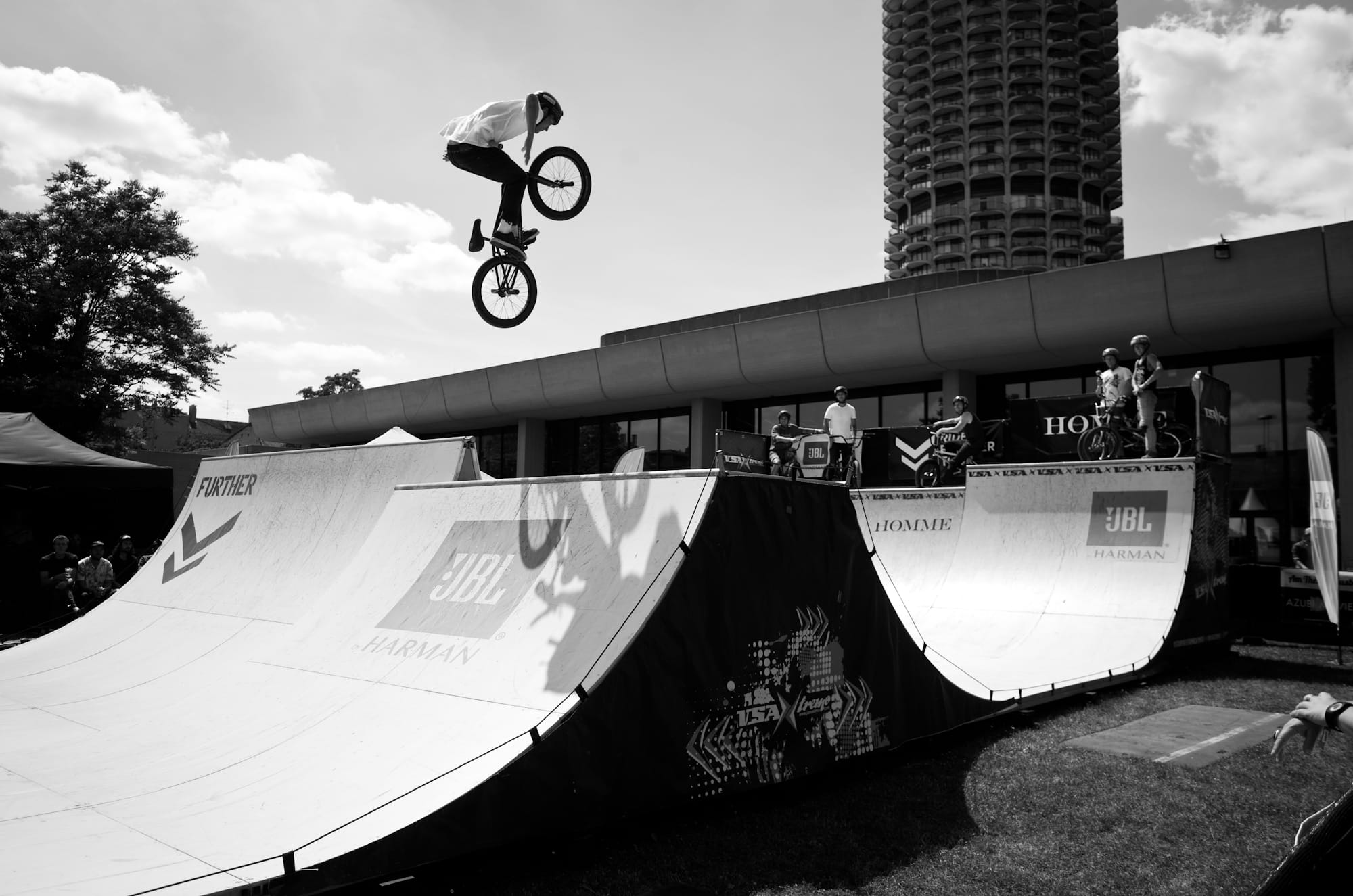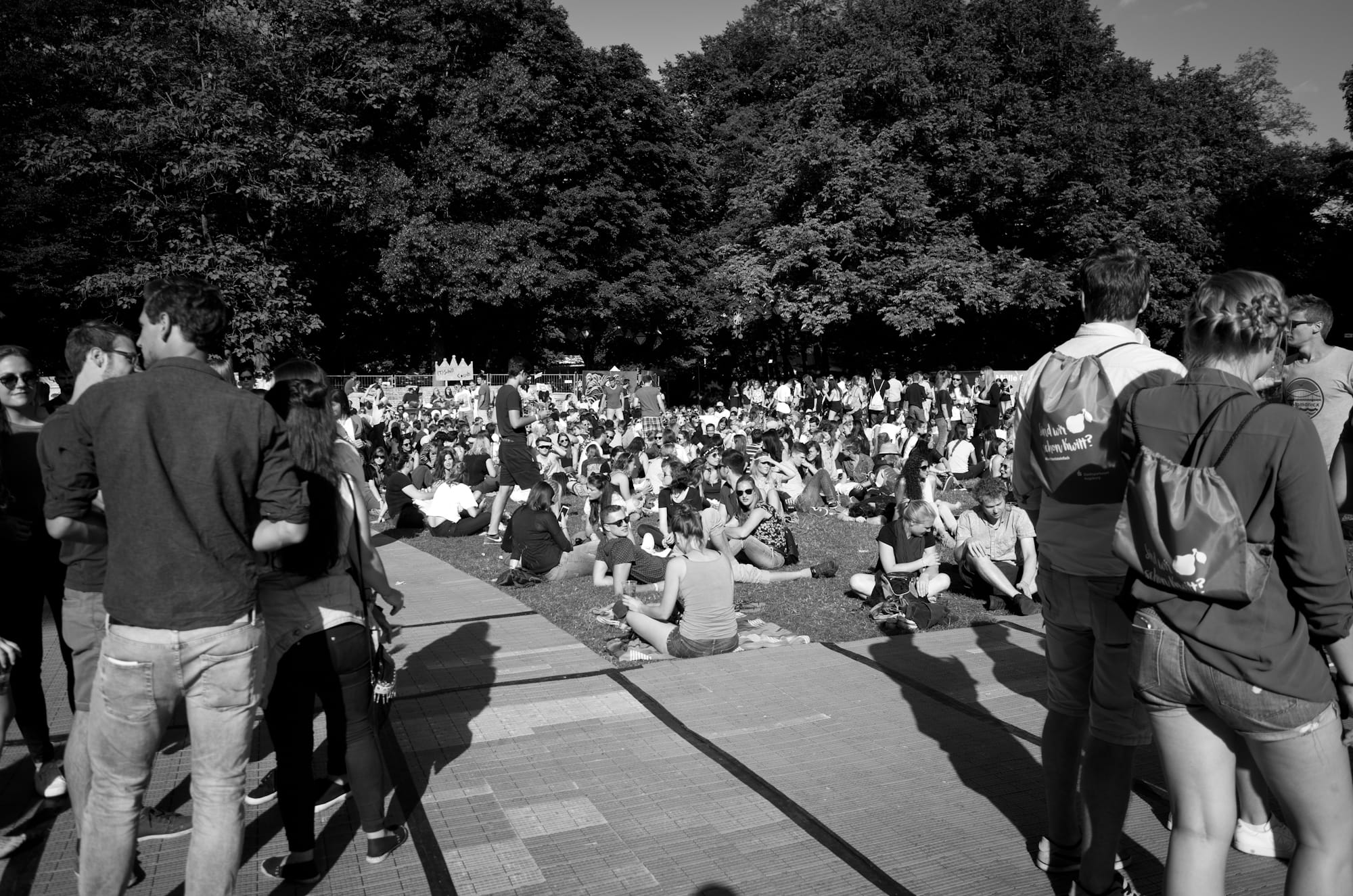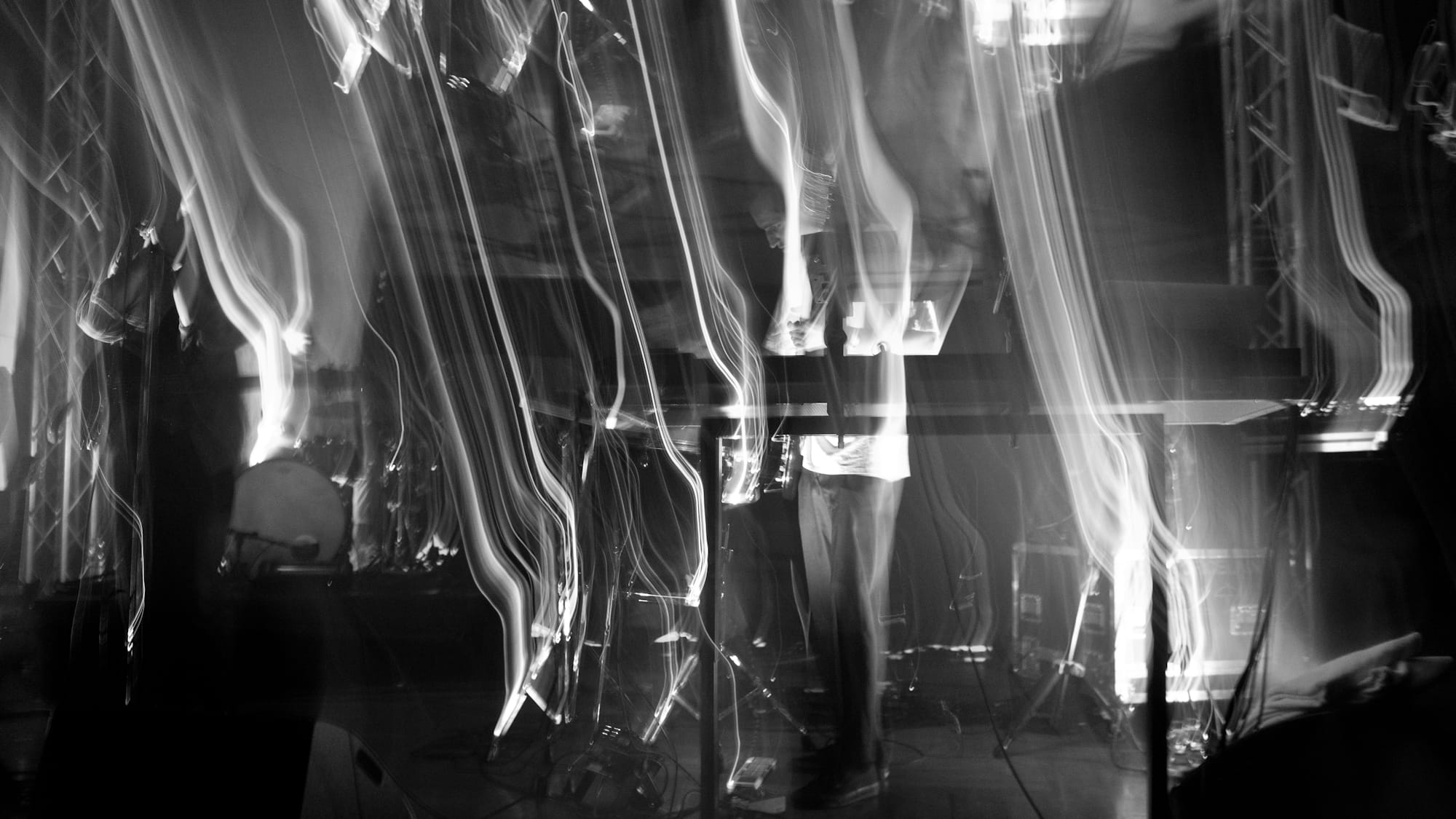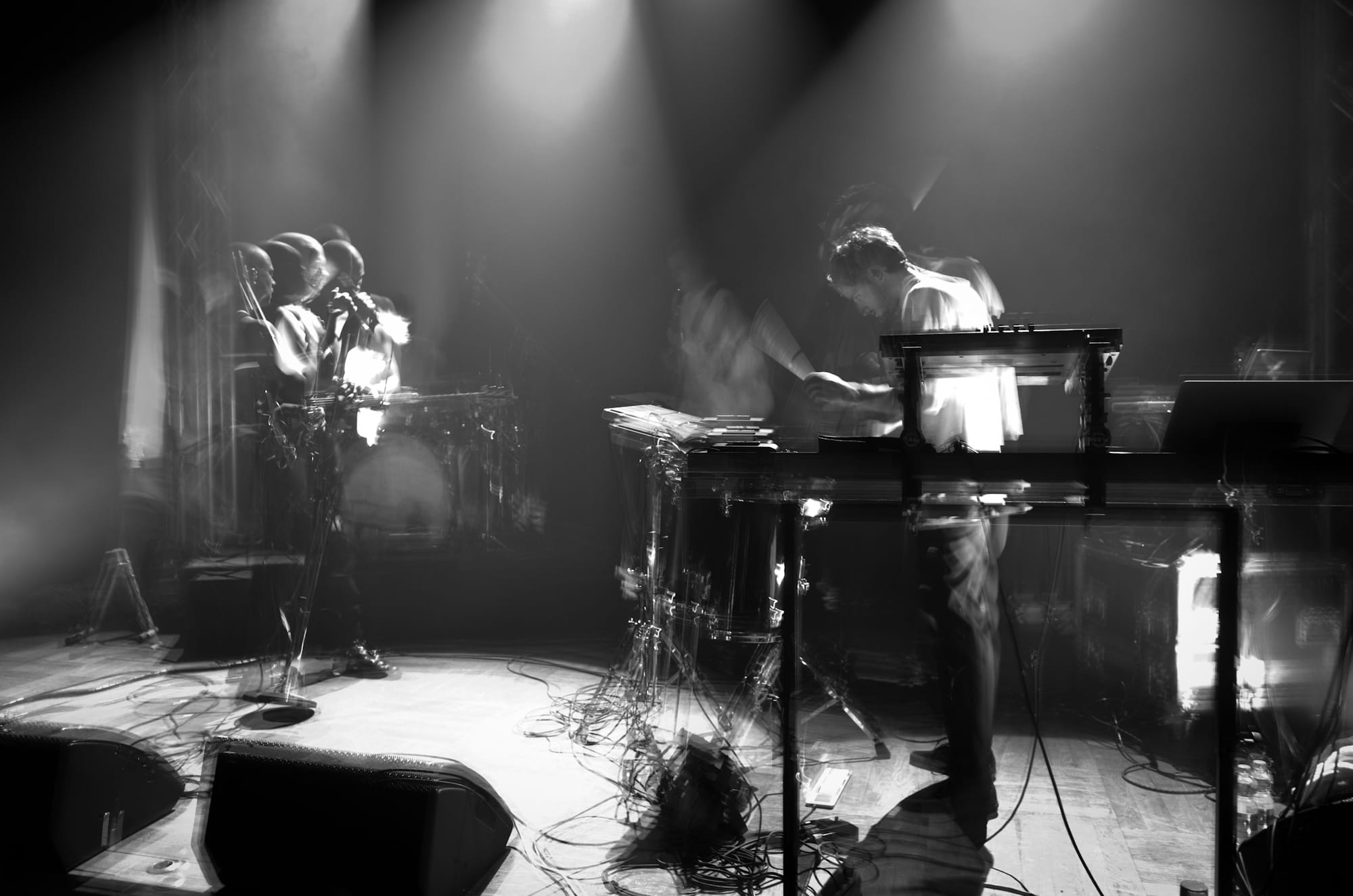The road winds its way through the green hills in gentle curves. The front wheel hugs the centre line. The wind rushes through the open window, and Joy Division play Love Will Tear Us Apart. The journey begins.
The foothills of the Alps pass by, slowly disappearing in the rear-view mirror. The border is approaching. The road glides on—a few hundred kilometres to Augsburg. A good three-hour journey. But what are three hours of a lifetime?
Time is relative—Albert Einstein already knew that. Yet, we don't understand time. We usually have too little, or it doesn't want to pass, as if we were sitting in a discouraging physics lecture.
But then there is the experience between the moment and eternity. Moments in which we lose all sense of time. Moments of wonder, of mystery, of magic. The complete immersion in something.
Nothing is rarer than music that is able to set this fascination to music. Because that music itself becomes timeless beyond all categorisation. It becomes intimate and unapproachable at the same time. It is a daring art of chance that defies all conceptualisation. Bob Dylan's Like A Rolling Stone emerged from a lyrical outpouring of several pages, which was later moulded into the immortal song.
Many have tried and failed to find a recipe for eternal youth. This is precisely why Markus Nikolaus and Julien Bracht should be dismissed as hopelessly lost dreamers. They call their ambitions in timeless sound art unabashed. Yet history is full of desperate and tragic heroes whose endeavours and suffering captivate us time and again.
On the other hand, suffering hasn't sounded as beautiful for a long time as on Hymns To The Night by Lea Porcelain, the musical child of Nikolaus and Bracht. The two men could not be more different: Bracht was a successful techno producer who had had enough of the parties. Nikolaus, a bittersweet singer-songwriter, in search of new facets. As different as the musicians' backgrounds may be, fate—or chance—brought them together. And the will to leave something lasting in this world has brought them together like a blast furnace.
Augsburg. The hotel tower rises over a hundred metres into the air. At its feet, a secluded park area extends, and you forget that you are in the middle of a city. Full bass sounds boom out of the green—the Modular Festival is on the home straight on Saturday afternoon.
Three stages are outdoors, and there is a club stage in the neighbouring congress centre. In between, there is a colourful jumble of graffiti walls, small market stalls of the local creative scene and a food corner that exudes beguiling scents. Even a small skate park has been set up, where BMX and board acrobats can show off in the blue sky. It's a perfect summer's day, a perfect festival day. Lea Porcelain are still in Frankfurt.

Out Is In opens the album Hymns To The Night as if a great battle were about to take place. The marching drums drive relentlessly forward. Around the war drums, Lea Porcelain conjures up a dark infinity in which the voice of Nikolaus echoes lost. Out Is In sets the tone for the songs that follow: dark, menacing and unstoppable.
But even Out Is In cannot prepare you for the overwhelming intensity that confronts you with Bones. The deeply melancholic piece lulls you in thoughtfulness that hasn't been heard since The Cure, and it's captivatingly beautiful. The instruments intertwine so seamlessly that they merge and no longer stand as individuals in the arrangement but unite in a loving act and create new life.
Nothing describes Bones—or rather the whole album—better than Greil Marcus's definition of the «total sound»: «You can know that, for you, a particular word, a certain part of the sound deep inside of the overall sound is what you want to hear; you can make a firm resolution to push aside everything else in the song in anticipation of the part of the song you want to hear. But it never works.»
In fact, you can listen to Bones a million times, and it never gets old. It doesn't age because every time you listen to it, you discover a facet you hadn't heard before.
A whole series of singles preceded Hymns To The Night. All of them were dark and captivating. They propelled Lea Porcelain to the forefront of a new wave of post-punk, also noted by Negative White. They were the true heirs of Joy Division. On closer inspection, this is an almost amateurish misunderstanding of the facts: Lea Porcelain sound about as much like Joy Division as Bob Dylan sounds like the Stones. What connects Lea Porcelain to post-punk, and Joy Division in particular, is a sense of timelessness in the music.
The fact that they are not celebrating post-punk, despite their affinity and minor references, is something the duo makes clear in the third song. A Year From Here begins with a lovely ukulele that gradually sinks in a surging torrent of electronic waves. A piece that dwells so strongly in its sphericity that one can certainly speak of dark ambient.

A few hours later, the park has filled up. The Augsburg youth and some of the young-at-heart are sitting under the trees wearing sunglasses. Of course, the festival is not complete without the eccentricities that go with it: the hipsters, the Edding penises on their cheeks and the full-body costumes. One of them has even had a lion's face painted on his face. It seems as if the puppet box has come to life.
As the sun slowly sinks towards the horizon, the atmosphere heats up. The mood becomes more relaxed, almost exuberant. On the main stage, The Sensational Skydrunk Heartbeat Orchestra repeatedly sing a line: «Our time is running out!»
Warsaw Street, which Lea Porcelain presented as a single last autumn, is the reason for the Joy Division comparisons. The drums, the deep, monotonous guitar, the sonorous, suffering vocals... in Warsaw Street, they do indeed sound like a kind of post-punk 2.0.
However, this idea already dissolves during Similar Familiar, while the piece itself drifts into a black abyss. It is a depressing but also extremely enticing listening experience. A hellish ride into a dark abyss.
Lea Porcelain only breaks with their sonic concept once. White Noise is a piano ballad. The song, which comes sixth, seems to have been deliberately placed in the centre as if the band didn't want to overwhelm the listener: a short breather. Here, Nikolaus' voice is clearly in the spotlight for the first time. In this respect, White Noise remains the only radical element in the sound structure. It is not easy to decide whether or not to accept this foreign body in the universe.
With the last light of day, Lea Porcelain arrive in Augsburg. Their black bus is pulling a trailer full of equipment. They have no idea what hustle and bustle awaits them in the park.
Two police officers are enthusiastically watching the crazy goings-on in the halfpipe. So they don't see a boy of barely 16 scurrying into the bushes with his equally young companion. His eyes twinkle mischievously as he disappears behind the leaves.
As darkness falls, Gurr sing about walnuts. Lea Porcelain lug their equipment behind the club stage. Afterwards, they watch Kakkmaddafakka from their room in the hotel tower.
After the balladesque interlude of White Noise, Lea Porcelain returns to familiar waters. But they have taken new courage. The Love is driven by a sluggish groove. It serves as a common thread while the song continues to increase, to then unfold its full force in the chorus.
Then follows A Far Away Land, which already draws an endlessly vast horizon in terms of sound. Nikolaus dispenses with practically any intonation. The monotone is the constant in which the singer breathes his lines almost breathlessly into the microphone.
If Bones was already melancholy, Remember is inconsolably sad.
I got the feeling I lost you already
Remember is the undertow that draws you out of the moment of life. Everything around you blurs and fades into insignificance.
The distant trance state of Remember continues in 12th Of September. The song about Nikolaus's deceased father blossoms like a shady flower. The archaic drumbeats give the song a ritual character, accompanied by drawn-out cries. Lea Porcelain tread a very fine line, dancing between hope and despair. It is music that disarms with its honesty.
In fact, the sound is always overwhelmingly grand. Despite this epochal attitude, the songs remain within reach. Despite the exuberant arrangements, the music sounds organic. Even in Loose Life, the most unwieldy piece on the album. With a daring rhythm and psychedelic repetitions in the lyrics, Loose Life is vaguely reminiscent of the early works of The Beauty of Gemina. And as with A Year From Here, classical structures disappear in the abundance of electronic spheres.

At midnight, everything has to happen quickly. There are just fifteen minutes to dismantle the stage for the band Carpet and set it up for Lea Porcelain. The schedule has been changed so that Lea Porcelain are the last band to perform at the entire Modular Festival. It's a thankless task. And, of course, that quarter of an hour is never enough, especially not for Bracht, Nikolaus and their two colleagues, who always want to do it perfectly. They don't let themselves be put off and take as much time as they can get. After all, the night is still young, and their anthems haven't been played yet.
Sometime after two in the morning, Lea Porcelain load their trailer again. The mood is gloomy. They are not happy with the show, which they mastered quite well despite technical problems and an inattentive audience. But they make no compromises when it comes to quality. They don't want to be satisfied with the concert. They can't.

Peter Hook, bassist with Joy Division and New Order, once said that Joy Division had developed musically in the direction of U2. So, Lea Porcelain and Joy Division have another aspect in common, which is manifested in the final Endlessly. The German duo sound confusingly similar here. The crystal-clear guitar leads through the song, and Nikolaus's voice can hardly be distinguished from Bono's.
The musical homage to U2 is so good that it is better than the original. Endlessly is one long crescendo. With surgical precision, Lea Porcelain layer upon layer until the arrangement suddenly erupts like a volcano. A short, powerful explosion. What remains is a sense of bewilderment coupled with euphoria.
It is a feeling that characterises both Endlessly on a small scale and Hymns To The Night as a whole. These twelve songs last only 48 minutes, but the impression remains of having spent an entire lifetime in their universe. A slight uneasiness creeps in because you can't explain how it happened.
At the same time, you feel like you've just witnessed something extraordinary. A part of something greater than your own existence. Therefore, although Hymns To The Night is rooted in melancholy, in the end, there is a feeling of liberation.

Lea Porcelain – Hymns To The Night
Release: 16/06/2017
- Out Is In
- Bones
- A Year From Here
- Warsaw Street
- Similar Familiar
- White Noise
- The Love
- A Far Away Land
- Remember
- 12th Of September
- Loose Life
- Endlessly





